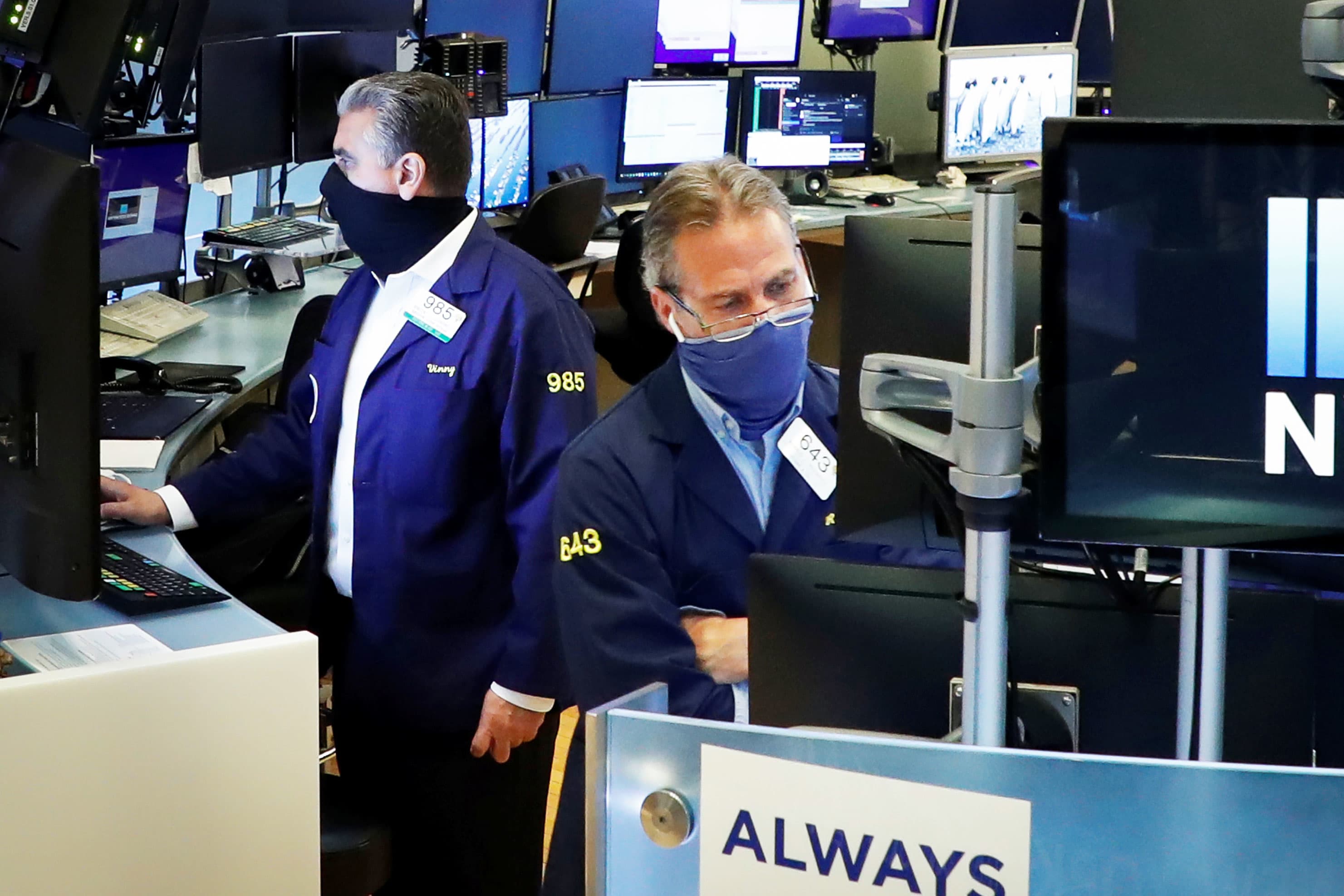
Stocks are back in sell-off mode.
The technology sector led the broader indexes lower into Thursday’s close as the waning pullback resumed in earnest, pushing the S&P 500 down nearly 2%.
Top market watchers including one former Federal Reserve chairman still harbor concerns about the market’s choppy comeback from the coronavirus pandemic’s devastating economic blow.
Here’s what three of them told CNBC on Thursday:
Gabriela Santos, a global market strategist on J.P. Morgan Asset Management’s global market insights strategy team, said the recent weakness made some sense:
“There is a rationality in the recovery off the March lows and there’s a healthy amount of skepticism about the economic recovery, but I would 100% agree … that we had gone a bit too far into that theme. And so, what we’ve been seeing over the past week or so is some profit-taking in some of those names, some right-sizing of regional, sector and style allocation exactly to position not just for the Covid reality we’re living in right this second, but for the recovery we’re going to continue to experience over the next year or two. And we have a lot of interesting catalysts coming up over the next two-three months that would be actually, if they occur, much more of an upside surprise for styles like value or sectors like financials than the leaders that have worked so far. So, I think it makes sense so far, but it’s about bringing a better balance and looking at some of those laggards for a longer-term horizon.”
Former Federal Reserve Chairman Alan Greenspan flagged several “critical issues” he said the market must still reckon with over the long term:
“The critical issues that we’re dealing with are one, the coronavirus, on which we know very little but we pretend a great deal. The critical issues that we’re dealing with are the budget deficit and the entitlement programs, which were engendered by people who are retiring and, as a consequence of that, creating a demand for funds which affect the markets. So, my view is that we know a great deal about the level of retirement and therefore the degree of entitlements and very little about the coronavirus, which we’re guessing at. Conceivably, we may learn things about it as we go month by month, but I doubt that. But my overall view is that the inflation outlook is unfortunately negative and essentially the result of basically the huge increase in entitlements that are crowding out our private investment and productivity growth, which incidentally, not only importantly, is slowing down to about a 1% annual rate.”
Bob Peck, chairman of global internet investment banking at Barclays, looked to the stocks trading at premiums for signs of what could come next:
“The S&P is currently trading at about 24 times forward earnings 2021. Now, that’s historically, pre-Covid, around 20 times. You’re up a good 4 points there. But there’s a couple things that I’d point out there. One … investors aren’t sure that the revisions have actually flown through to 2021 and 2022, maybe therefore artificially increasing that multiple. And then No. 2, if you think about Covid-resistant companies and names, the premiums on those names have gone up a good 50% or so versus non-Covid-resistant at only about 10%. So, you’re seeing a premium for investors on these nonresilient names. … Last time I was on, we spoke about this work-from-home basket, or what our investors are calling a COVID, C being the collaborative software and cloud software products, security, O being online commerce, V being videos and gaming, I being in-home things like Peloton, Teladoc, etc., and D, delivery. What’s interesting … is those names from the beginning of the year are up over 80%, and … they’ve been up about 40% since late May. So, it’s interesting those names continue to perform and you see investors placing a premium on these names that are maybe not only resistant to Covid, but may even be benefiting and are seeing their growth reaccelerate.”




